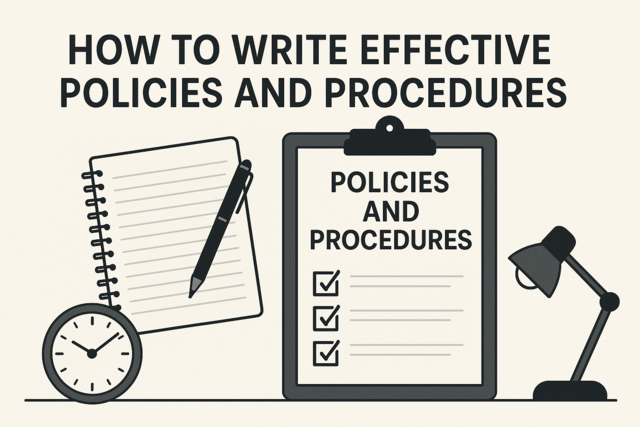The Beginning of Your Career � the Ground Floor
As with most careers, you'll have to come in on the "ground floor" � the lowest position. In other words, don't expect to land an ideal PA job with a celebrity or high-profile person your first time out.
In fact, your first job (possibly your first several jobs) may be only tangentially related to a PA career. Unless you have connections, chances are you'll have to put in several hours working for a variety of clients and in a variety of capacities before you can expect to land a job really in line with your professional goals.
Don't be surprised if some of your early working situations are less than ideal, in terms of duties and pay. When embarking on a personal assistant career, there are not many ways around this, unless you're fortunate enough to have connections with wealthy/famous people willing to recommend or hire you, despite your lack of experience (and if you have such connections, by all means, use them!).
The road to a successful PA career needn't begin with a straight personal assistant job. Some personal assistants began their careers as administrative assistants, errand-runners, personal shoppers, party/event planners, caterers, chauffeurs, coordinators, assistants on film sets, or non-profit organizers. All of these skills, particularly administrative skills, are useful platforms from which to launch a career as a personal assistant.
The Resume and the Curriculum Vitae
One of the most important tools a professional has is the resume. The resume is often the very first contact you have with a potential employer, so it's imperative it represents you properly. If your resume is sloppily formatted, contains errors of any kind, or is too lengthy, it will likely wind up unread in the trash.
You may also hear the term curriculum vitae, or CV for short, used in connection with "resume". Many use the terms interchangeably, and while they are similar types of documents, they serve slightly different purposes. For one, a resume is shorter than a CV � resumes should be about one page (one and one-half or two at the very most), where CVs are typically two to three pages, perhaps slightly longer. And while both include information regarding skills, accomplishments, education, work experience, and credentials, the CV has an additional focus on academic background. A resume is considered the typical first choice, with CVs generally provided upon request. A potential employer may request a resume to start with, then ask to see a CV as the interview process progresses.
Some applicants choose to include a cover letter with their resume, but this is no longer considered a requirement for every position. Some potential employers will specify such requirements in the job description; some may even request no cover letter be supplied. In today's job market, a cover letter is most often cut and pasted (or written directly) in the body of the e-mail. A separate attachment with the letter is unnecessary unless specifically requested.
Cover letters should be brief, no longer than half a page at most, and express a simple acknowledgment of the position for which you're applying, your interest, a brief overview of qualifications or relevant skills, and a sentence thanking the individual for their time and consideration. While closing phrases such as, "Thanking you in advance," and "I look forward to hearing from you soon," are used frequently, they are not recommended. Thanking someone in advance suggests arrogance or an overbearing attitude. And adding, "I look forward to hearing from you soon," is unnecessary. Not only does it quietly hint at desperation, it's something that just goes without saying. Of course you look forward to hearing from them soon � you applied for the job because you want it, didn't you? Potential employers know that; you needn't reiterate it.
Make sure to read through all job advertisements thoroughly to avoid making errors or having omissions in your application/resume document(s). Missing minor details in the first round will eliminate you from the pool of potential interviewees faster than a Hollywood favorite can lose favor and become an outcast.
Resume Creation and Presentation
In the age of e-mailed resumes, the added assistance of helpful presentation techniques such as expensive resume paper or high-quality envelopes to help boost appeal and attention no longer exists. Instead, it is necessary to ensure precision in all other areas, if you want your resume to get noticed in a positive way.
The first consideration is resume style and formatting. This is perhaps the easiest part of the resume creation process. There are many free resume-creation websites online featuring a plethora of resume formats. You can browse through several choices until you find the one that suits your needs, then use online tools to build the resume.
Most potential employers will want your resume saved as a computer word document and sent as an attachment to an e-mail. You may wish to double-check which computer word processing program the recipient uses prior to sending your resume to ensure your programs are compatible.
Unless the client specifically requests it, it is inadvisable to "cut and paste" your resume into the body of an e-mail. Most e-mail programs do not support some or all of the formatting commands of current word processing programs, so the formatting isn't properly "translated" by the e-mail program. This can lead to strange spacing at best and complete confusion at worst. If an "e-mail body" resume is requested, it's best to remove all special formatting, such as elaborate fonts and text boxes, prior to copying the information and pasting it into the body of the e-mail. This will make the document easier for the recipient to follow.
As mentioned earlier in the article, resumes should be an appropriate length. Remember, you're not writing the entire story of your life here; you're giving an overview of your education, qualifications, and relevant experience. Always make sure you include your complete contact information, including full name, address, phone number(s), and e-mail address. If you have a "professional only" Facebook or YouTube account, you may want to include those, as well. Carefully double-check the entire resume, including -- and especially -- your contact information for any errors. It is easier than you imagine to mistype one digit in a phone number; wouldn't you hate to discover you'd missed a job opportunity because your phone number was one digit off?
Grammar Review � Typical Language Traps
It is amazing how many resumes are turned in with punctuation, typing, and grammatical errors. Potential employers notice everything about a resume and will quickly move on to the next one if any errors are found.
Some of the most common "killer mistakes" are: typing errors (typing "an" instead of "and," for example); grammatical errors (such as using "gots" instead of "got"); poor word choice, including the use of colloquial words or phrases; inconsistency in tense usage, like using past- and present-tense words or phrases in the same sentence or paragraph; improper use of punctuation (or lack thereof); and using the wrong form of a word (their, there, and they're, for example). Spell check can be a wonderful help, but don't rely upon computer checks and balances to catch all your mistakes, particularly contextual errors. You need to know and understand grammatical rules, context, spelling, and proper punctuation, as well as skills for double-checking the document with your own eyes.
An important skill to develop is an understanding of the difference in meaning between words with similar definitions. For example, what is the difference between "fewer" and "less?" Does it matter? Absolutely! "Fewer" and "less," despite being thought of as interchangeable words by many, have very different meanings. "Fewer" refers to objects which can be counted individually, like cars or coins. "Less," on the other hand, refers to a measured amount, like ounces or liters. You wouldn't say, "John had less cars than Stan," right? Since cars can be counted individually, you would say, "John has fewer cars than Stan." (If you're talking about the weight of the cars, however, you'd use "less," instead of "fewer." e.g. "John's cars weigh less than Stan's cars.")
Another pair of confusing words is "who" and "whom." There is actually a very handy and simple trick for deciphering which word you should use. Substitute "him" for "whom" and "he" for "who" in the sentence. Turn the phrase into a statement or question if needed to assist in choosing the correct word. (We use "him" and "he" since both "whom" and "him" end in the letter "m," making it easier to remember � you can use "her" and "she" if you prefer.) For example, read the following well-known sentence: "For whom the bell tolls." Let's check to see if "whom" is the correct word to use here. Begin by substituting either "he" or "him" in the sentence: "For he the bell tolls," versus, "For him the bell tolls." The second sentence sounds correct. Check the sentence again by turning it into a question, then answering the question: "The bell tolls for him?" "Yes, the bell tolls for him." Therefore, "For whom the bell tolls" is indeed correct. This quick test can be applied to determine the correct word choice between "whoever" and "whomever," as well.
Yet another confusing word choice is "are" and "is." Take this sentence, used earlier in this article: "Another pair of confusing words is "who" and "whom." When you first read it, did it strike you as odd or incorrectly written? Perhaps it "sounded" wrong to you, because we are talking about two words, but we used the term "is," which is a singular term. The sentence is correct, however. If you remove the phrase "of confusing words," you are left with "Another pair." A pair is a grouping � a singular term. Therefore, the correct word to use would be "is." (An option for writing this sentence using "are" instead of "is" would be, "Other confusing words are "who" and "whom.")
What "sounds" correct is not necessarily correct. For example, most people say, "you and I" when including themselves in a sentence. When many of us hear someone say, "you and me," we cringe, thinking it's incorrect, when in fact it is correct.
Let's explain using a simple sentence as an example. Should you use "me" or "I" in the following sentence: Everyone is here to see you and ___. Now try each choice separately, without "you and" as part of the sentence: "Everyone is here to see me," versus, "Everyone is here to see I." It now becomes obvious which is correct.
Colloquial words and phrases are something to avoid when writing a cover letter, resume, CV, or any professional correspondence. Such words and phrases are "used when people are speaking in an informal way; [or] using an informal style." While the term "colloquial" is often thought of as a negative word, it merely means an informal, conversational style. Note the word conversational. If you're writing a text to a friend and purposely making it sound as though you're having a face-to-face conversation, you're making appropriate use of colloquialisms in writing. If, however, you're writing to a potential employer, words and phrases such as, "dude," "man," "messed up," "girlfriend," or "Talk to you later," are not going to get you noticed in a positive way. Stick to things like "Sir," Madam," "To Whom it May Concern," "challenging," and "respectfully yours." Never use curse words.
It is also advisable to avoid terms like "crap," "Oh my God," and "screw it" when writing or speaking professionally. Some individuals may be offended by such terms, and you don't want to alienate a potential employer or associate. "Crud," "Oh, rats!" "Oh my goodness" and "forget it" are a few less offensive substitutes. You may curse like a sailor during your off-time, but when in the presence of your employer, their associates, and/or other professionals, be conscious of the wording you use. If you accidentally blurt something out which causes offense, apologize immediately.
Make sure you punctuate appropriately. Resume templates typically have everything formatted, including examples of how each section should be phrased and punctuated. When writing in a more narrative style, such as in a cover letter, standard rules of proper phrasing and punctuation should be utilized.
A punctuation puzzlement that deserves special attention is the apostrophe. For some reason, perhaps due to our reliance on technology to catch our errors for us, practically everyone misuses this tiny, yet important, punctuation symbol. The apostrophe makes copious appearances where it does not belong, and is completely absent from its vital place in words. (Coincidentally, the previous sentence has one of the words most often subjected to "apostrophe abuse. Do you know which one?)
The rules of the apostrophe are actually rather simple. An apostrophe is used in contractions (making cannot into can't, for example), where it takes the place of the missing letters. The other use for the apostrophe is giving something ownership, or making it possessive. Next time you are driving or walking down a busy street, take a look at some of the business "tent" or temporary signs and you'll see how badly the apostrophe is abused. "Happy Hour Drink's $1.00" is a very different sign from, "Happy Hour Drinks $1.00." The first sentence is making a statement that someone or something called "Happy Hour Drink" owes $1.00. We don't think that was the vendor's meaning! The second sentence is advertising Happy Hour Drinks for the price of $1.00, which is likely what the vendor meant (and a pretty good deal, too!).
The exception to the apostrophe rule is the word it. The possessive (ownership) form of this word is always its with no apostrophe. The apostrophe appears with the word it only when being used for the contraction "it is" (e.g. "It's a really big mess."). Never use its' � this is not a word and is never correct.
A good way to catch grammatical and punctuation errors is, print out your completed resume and proofread it out loud from the printed copy. Mark any errors on the physical copy, then transcribe the corrections onto the electronic document. Reading out loud engages an additional portion of the brain and makes it more likely you'll catch any "sneaky" mistakes, like typos, prior before hitting "send" on your e-mail to a potential employer.
Being extremely particular about understanding proper grammar, spelling, and punctuation isn't just important for your resume. Remember, your goal is to work for a high-level professional. Do you think your future boss will appreciate you making her look a fool because your e-mails to others are filled with language and punctuation errors?
























